MercoPress. South Atlantic News Agency
Tag: US dollar
-
Friday, September 28th 2018 - 08:58 UTC
Brazilian currency strengthens below 4 to the dollar: first time in five weeks
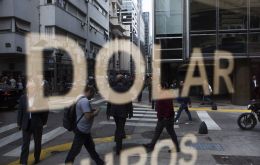
The Brazilian currency dipped under four Real to the dollar for the first time in five weeks at close on Thursday as the markets reacted favorably to the emergence of two clear presidential election frontrunners. The Real closed at 3.99 to the US dollar just two weeks after hitting a record low of almost 4.2 to the dollar -- it's lost around 17% since the start of the year.
-
Monday, September 24th 2018 - 08:16 UTC
Almost two million Argentines out of a job in the second quarter of 2018
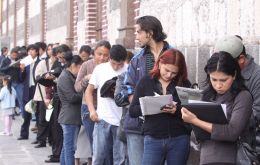
Almost two million Argentines are without a job, more precisely 1,999,387 according to the latest unemployment report from the county's stats office, Indec. In effect unemployment rose in the second quarter to 9.6%, from 8.7% a year ago, making it the highest figure in twelve years.
-
Saturday, September 22nd 2018 - 08:53 UTC
Argentine Peso strengthened for the third straight day on Friday
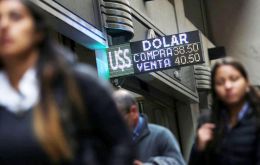
Argentina’s peso strengthened for the third straight day on Friday, driven by optimism that the government would sign a revised financing deal with the International Monetary Fund to include stricter fiscal measures and faster cash disbursements.
-
Friday, September 21st 2018 - 08:42 UTC
Brazil stocks lower but the Real currency recovered against the US dollar

Brazil stocks were lower after the close on Thursday, as losses in the real estate, industrial and financial sectors sectors led shares lower. At the close in Sao Paulo, the Bovespa index lost 0.01%.
-
Friday, September 14th 2018 - 09:28 UTC
Argentine currency drops to a new record low of 39.90 pesos to the US dollar

Argentina's peso currency fell 3.51% on Thursday to close at a new record low of 39.9 per U.S. dollar, as market confidence ebbs away despite President Mauricio Macri's efforts to reassure investors. Dollar demand had risen on Thursday due to high liquidity sparked by an auction of treasury notes, traders said.
-
Wednesday, September 12th 2018 - 08:13 UTC
Argentina equities and Peso slide, in line with Brazil's political situation
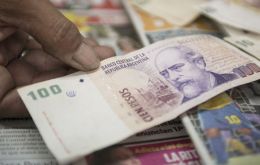
Argentine equities and the Peso continued on Tuesday their slide amid global trade tensions, uncertainty about Argentina's 2019 fiscal budget, talks between the government and the International Monetary Fund and the political situation in Brazil, which together with China are Argentina's main trade partners
-
Wednesday, September 5th 2018 - 08:16 UTC
Argentine Peso slid another 2.18% and the Central bank sold US$ 350 million in reserves
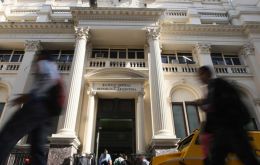
Argentina’s peso slid further on Tuesday as investors reacted with skepticism to president Mauricio Macri’s plans. Many worry he will not be able to push reforms through a restive Congress amid growing frustration on the streets of Buenos Aires.
-
Monday, September 3rd 2018 - 19:17 UTC
Macri admits the seriousness of the situation and Dujovne is off to meet with IMF

President Mauricio Macri unveiled plans on Monday to raise export taxes on grains and slash the number of government ministries in a bid to balance its budget next year, as Argentina seeks a deal with the IMF to accelerate a US$ 50 billion standby loan program.
-
Friday, August 31st 2018 - 09:16 UTC
Brazil contains the value of its currency with a US$ 1.5 billion support
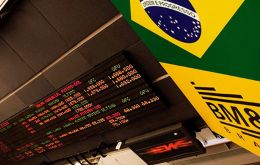
The economic and foreign exchange crisis in Argentina and the growing uncertainties in the political scenario of Brazil ahead of October's presidential election also had an impact in the Brazilian currency and markets, forcing the Central bank to come out with a US$ 1.5bn support.
-
Wednesday, August 29th 2018 - 08:48 UTC
US dollar hits a new record in Argentina despite auctioning US$ 200 million
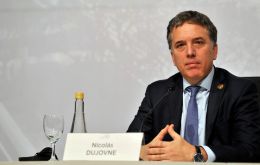
Argentina’s central bank auctioned a total of US$ 200 million of its reserves in two separate currency auctions on Tuesday after the peso hit new lows, the monetary authority said in a statement.
